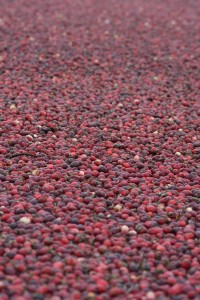This just in from the Massachusetts Department of Agricultural Resources (DAR)…
Scott Soares, DAR Commissioner, today announced $450,000 in grants from the U.S. Department of Agriculture (USDA) for projects aimed at enhancing the competitiveness of Massachusetts specialty crops– defined as fruits and vegetables, dried fruits, tree nuts, horticulture and nursery products. The grants will benefit 12 agricultural organizations across the Commonwealth.
Organizations representing apple and cranberry growers, winemakers, and horticulture are among the recipients of this year’s USDA Specialty Crop Block Grants, which are funded by the United States Farm Bill. This year, the USDA provided an estimated $46 million to state departments of agriculture to improve the competitiveness of specialty crops.
Read the list of this year’s grant local recipients are the jump.
- New England Apple Association (Hatfield) — $10,000 to strengthen market infrastructure connecting growers, packinghouses, and customers by expanding the apple industry’s capacity to sell fresh-sliced apples to the food service sector.
- Massachusetts Farm Winery Growers Association (Lincoln) — $35,000 to expand the Massachusetts wine industry through consumer awareness, market opportunities and continuing education.
- Southeastern Massachusetts Agricultural Partnership (East Wareham) and The Northeast Organic Farming Association (Barre) — $15,293 to provide educational programming and technical assistance on organic growing methods specific to specialty crops grown in Southeastern Massachusetts, and general education on organic growing systems.
- Franklin County Community Development Corporation (Greenfield) — $25,000 to expand the extended season market for growers and provide local, fresh, healthy fruits and vegetables to low and moderate-income young people year-round.
- Massachusetts Nursery & Landscape Association (Conway) and Massachusetts Flower Growers’ Association (Bedford) — $45,000 to create a program using social media to promote the sustainability of a flora infrastructure and develop planting standards in the Commonwealth.
- The Worcester Kindergarten Farm to School Initiative (Amherst) — $25,000 to expand a comprehensive nutrition education program that uses Massachusetts specialty crop snacks and specialty crop farm visits to teach young students about local food production and healthy eating.
- Cape Cod Cranberry Growers’ Association (Carver) — $54,296.87 to create a database and a secure Internet-based tracking system that cranberry growers can use to track their inputs of fertilizers, pesticides, and water to monitor volumes and results and create reports for handlers and regulatory agencies.
- Community Involved in Sustaining Agriculture (South Deerfield) — $45,000 to develop a feasibility analysis and business plan for collaborative sales of specialty crops through a year-round market, such as the planned Public Market in Boston.
- Boston Public Health Commission (Boston) — $25,000 to expand The Boston Supplemental Nutrition Assistance Program (SNAP) Farmers Market program at Boston farmers’ markets and increase consumption and access to specialty crops.
- Massachusetts Agriculture in the Classroom (Seekonk) — $22,765 to develop five new initiatives that offer tools and training to inspire and enable Massachusetts educators to initiate new school gardens or expand existing agriculture programs.
- Vermont Agency of Agriculture, Food and Markets in partnership with DAR — $5,000 to continue research on the University of Vermont Extension hopyard project and for outreach to aid local hop growers and brewers in setting up a local non-profit hops quality testing facility.
- The University of Massachusetts (Amherst) — $40,000 to enhance and develop the opportunities to market McIntosh apples in Central and South America.
DAR received four grants for several initiatives planned to enhance the competitiveness of Massachusetts specialty crops:
- Good Agricultural Practices (GAP)/Good Handling Practices (GHP) – $15,616 to provide reimbursements to growers for the cost of their initial Good Agricultural Practices (GAP) audit and facilitate and increase the rate of adoption of food/farm safety initiatives such as the USDA GAP/GHP program.
- Commonwealth Quality Program (CQP) — $22,325 to develop promotional starter packages for program participants to support education and outreach and extend brand awareness of Massachusetts Specialty Crops.
- “MassGrown & Fresher” MBTA Campaign — $10,000 to design and produce MBTA advertisements featuring seasonally appropriate specialty crop specific campaigns.
- DAR and Department of Conservation and Recreation — $10,000 to provide state park visitors with information about accessing local specialty crop products while participating in recreational opportunities for good health.

